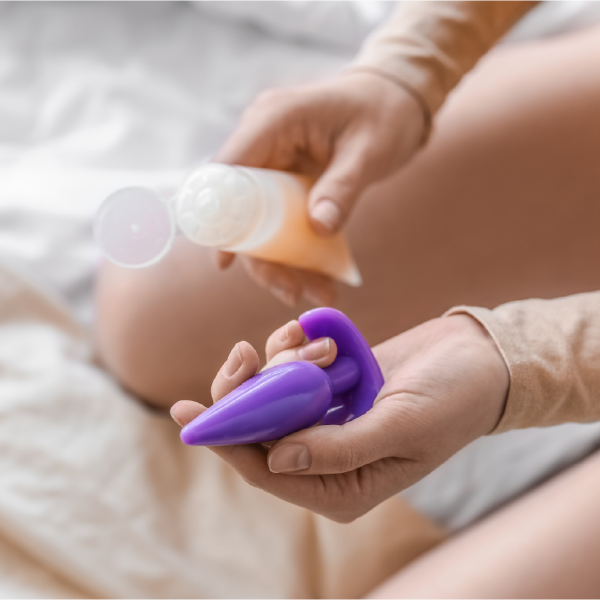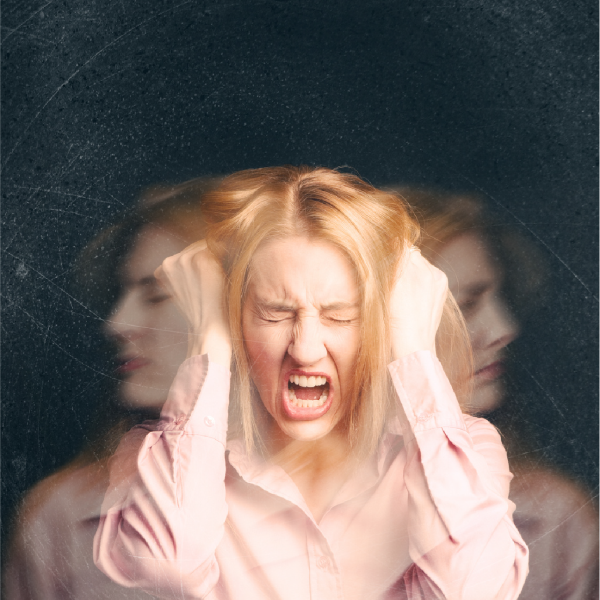- products
- Science
- wellness journal
- About Us
- Faqs
- Sustainability
- Contact Us
- Self Test
- English

Typically, we think of desire as an emotion arising from our mental state, akin to affection, anger, grief, surprise, or ecstasy. However, many scientists and psychologists now believe that desire is, in fact, a bodily urge, more analogous to hunger or the blood’s need for oxygen. In many ways, we can’t control what we desire because it is a hard-wired emotional and physiological response.
It is evident that sexual desire is one of the most powerful human needs. It typically occupies a significant portion of our time, emotional energy, and lives. But what fuels the often overwhelming force of sexual desire? Desire is the convergence of visual, biochemical, emotional, and bio-mechanical signals that initiate a hormonal cascade, potentially leading to the successful fertilization of an egg by a sperm (Source: Healthline). Now, do you know what happens when you have a low libido? Let’s dive in.
Low Libido
Low libido refers to a diminished interest in sexual activity. It’s normal for sexual interest to fluctuate occasionally, and also libido levels naturally vary throughout life. It’s also common for your level of interest to differ from your partner’s at times. However, experiencing low libido for an extended period may be concerning for some individuals and can sometimes indicate an underlying health condition. It’s natural for sexual interest to wane occasionally, but prolonged low libido might have some underlying cause. It can result from factors such as low testosterone, lack of sleep, depression, stress, substance use, and more. If you’re concerned about changes in your sex drive, a physician can provide further guidance.
Does Low Libido Affect Men & Women Equally?
Low libido can affect both men and women, but its causes and impacts can differ between genders. Common causes of low sex drive in men and women include relationship issues such as lack of emotional intimacy or unresolved conflicts; psychological factors like stress, anxiety, and depression; excessive alcohol consumption; medication side effects from antidepressants or antihypertensives, hormonal changes such as fluctuations in testosterone or estrogen levels, chronic health conditions like diabetes or heart disease, poor lifestyle habits including diet and exercise, substance abuse, sleep disorders like insomnia, and age-related changes that affect hormonal balance and sexual desire. While both genders may experience a decreased interest in sexual activity, the underlying reasons can vary, necessitating tailored approaches to address and manage the issue effectively.
Potential Causes of Low Libido in Men:
1. Erectile dysfunction
2. Performance anxiety
3. Concerns about masculinity or virility
4. Specific male health conditions like prostate issues or low testosterone levels
5. Side effects of medications commonly prescribed for men’s health issues, such as medications for enlarged prostate or hair loss
6. Lifestyle factors like excessive work-related stress or pressure
Potential Causes of Low Libido in Women:
1. Sexual Conditions
2. Medicines like SSRIs
3. Surgery related to breasts or genital tract
4. Menopause
5. Pregnancy and breastfeeding
6. History of physical, emotional or sexual abuse
7. Poor body image and self-esteem
8. Anxiety or depression
Are you worried about your low sex drive? Let’s discuss a few treatment options that might help address this concern.
For women experiencing a decrease in libido, several potential causes could be at play. Relationship problems might benefit from counselling, allowing couples to address underlying issues and improve intimacy. Sexual problems such as vaginal dryness or erectile dysfunction could be managed with medicines like vaginal lubricants or medications that facilitate erections. Menopause-related decrease in libido might find relief through hormone replacement therapy (HRT), which can re-balance hormone levels and alleviate symptoms. Mental health problems like depression might necessitate antidepressants or cognitive behavioural therapy (CBT), addressing both the emotional and psychological aspects of sexual desire. Additionally, medications, contraception, or health conditions might require adjustments, such as switching medications or exploring alternative contraceptive methods.
For men facing similar challenges with low libido, treatment options also vary. Erectile dysfunction, a common cause of decreased libido in men, could be managed with medications or other interventions aimed at enhancing sexual function. Hormone therapy might be beneficial for men experiencing hormonal imbalances affecting libido. Sex therapy or counselling can help address psychological factors contributing to low sex drive, providing strategies to improve sexual intimacy and satisfaction.
In addressing low sex drive, it’s essential to know that support and guidance are readily available. InYou offers a wealth of resources to help navigate these concerns. Seeking professional advice enables the formulation of personalized treatment plans tailored to individual needs, ultimately restoring sexual health and overall well-being. Remember, you’re not alone in facing these challenges; effective solutions are within reach with proper support and guidance.
Sources:
Author:
Source:


Embrace your body, ignite intimacy, and unlock boundless pleasure.
Related Products
Get 10% off
on your first order
You’ll also get dibs and a heads up on any sales or product launches.










